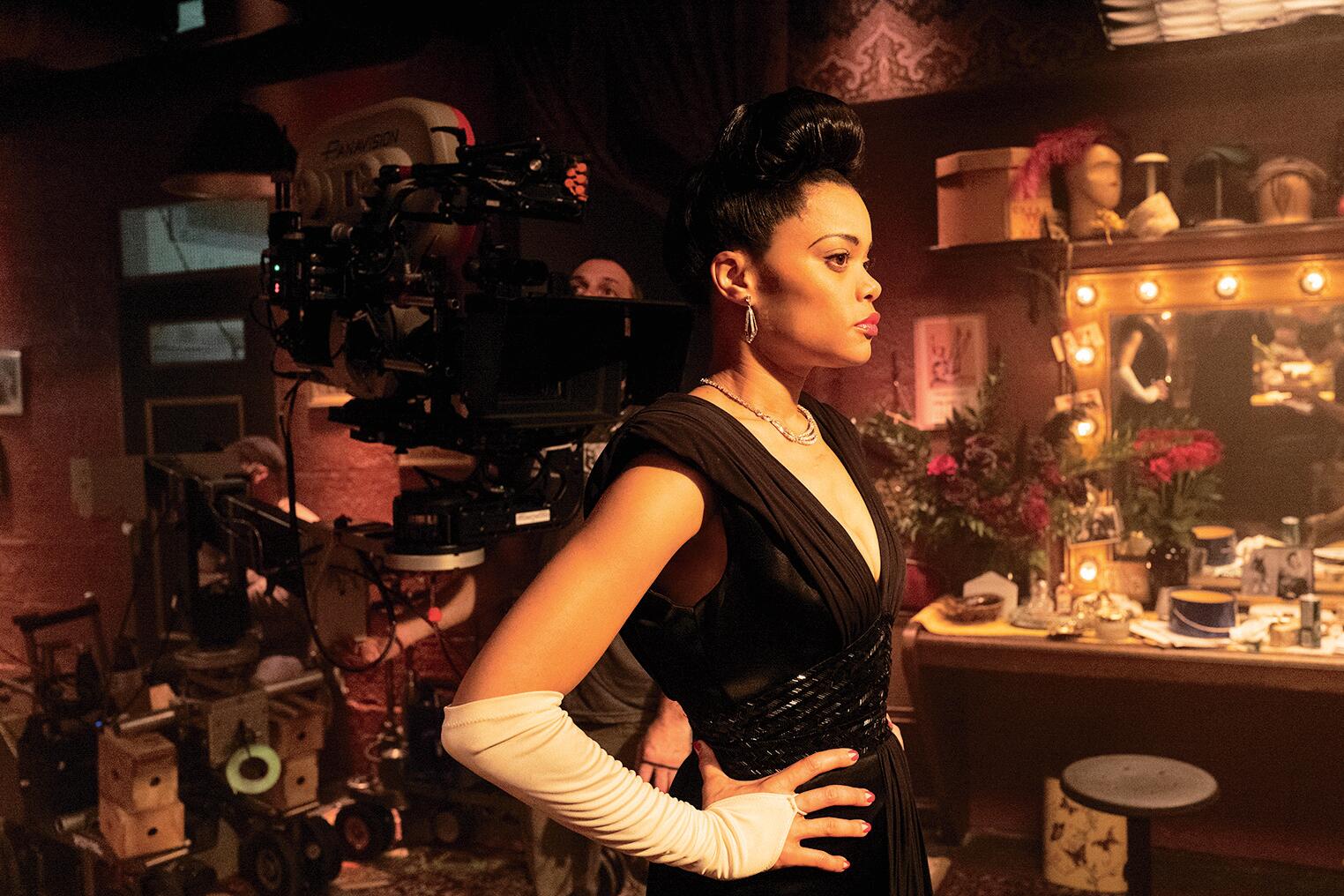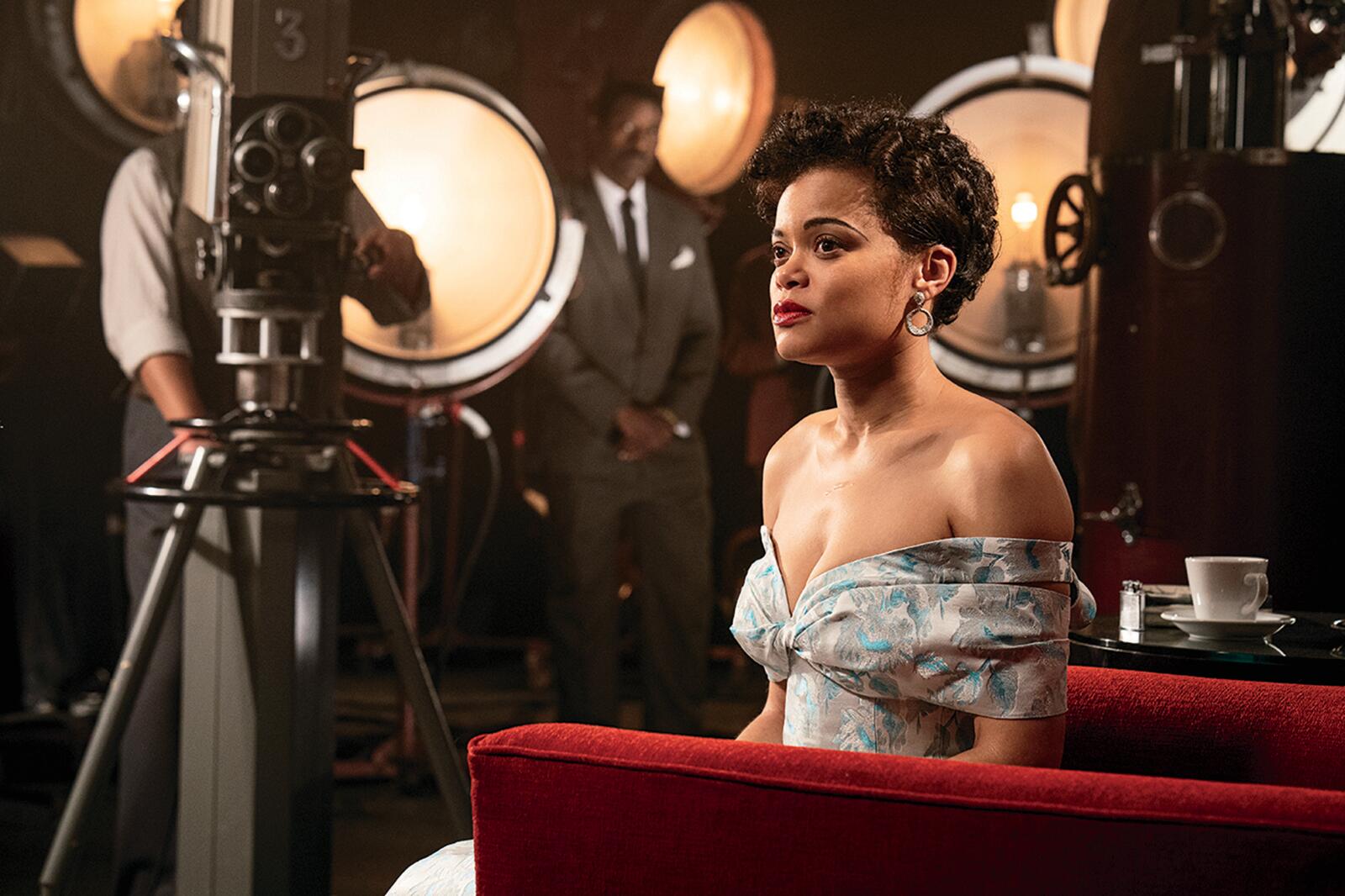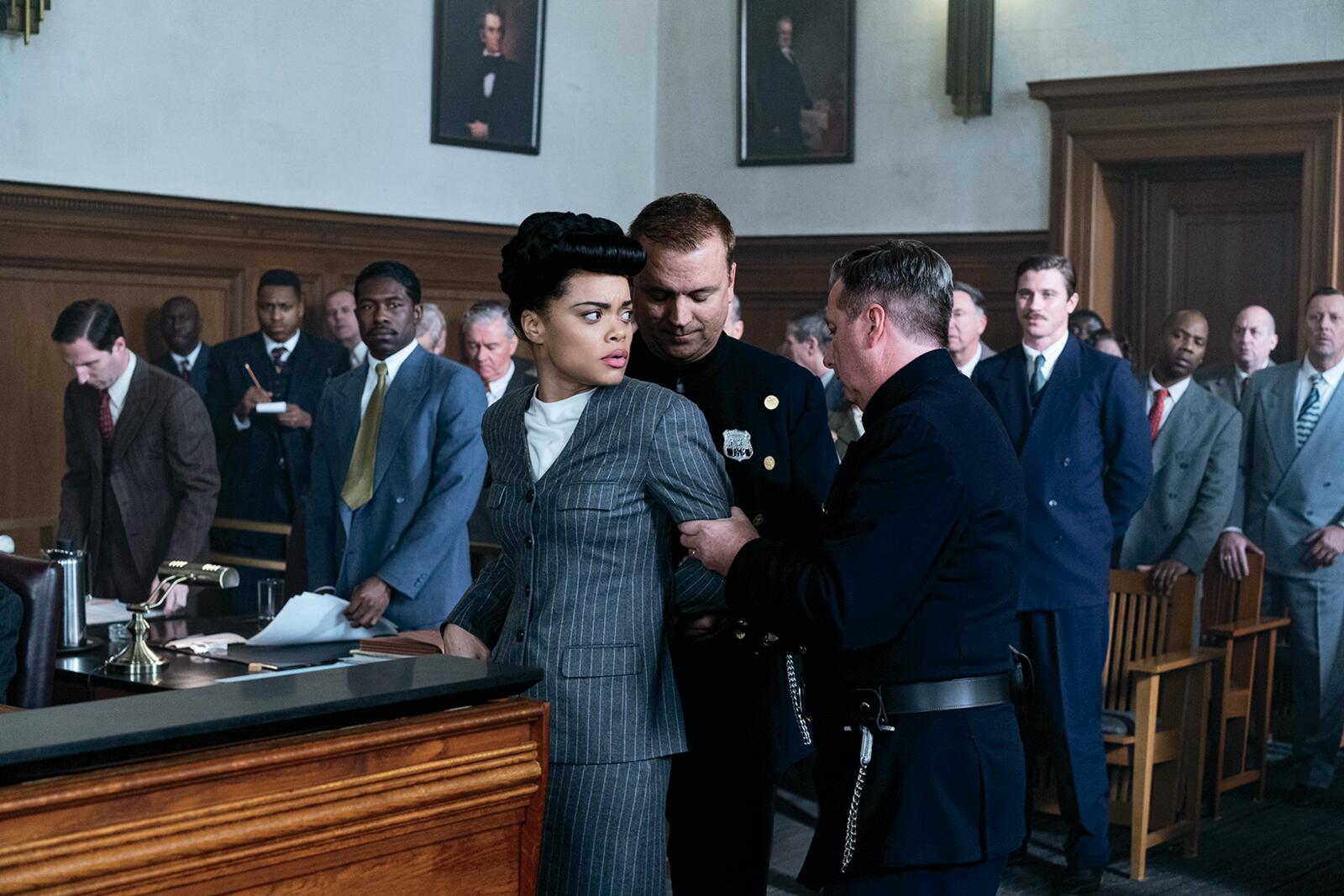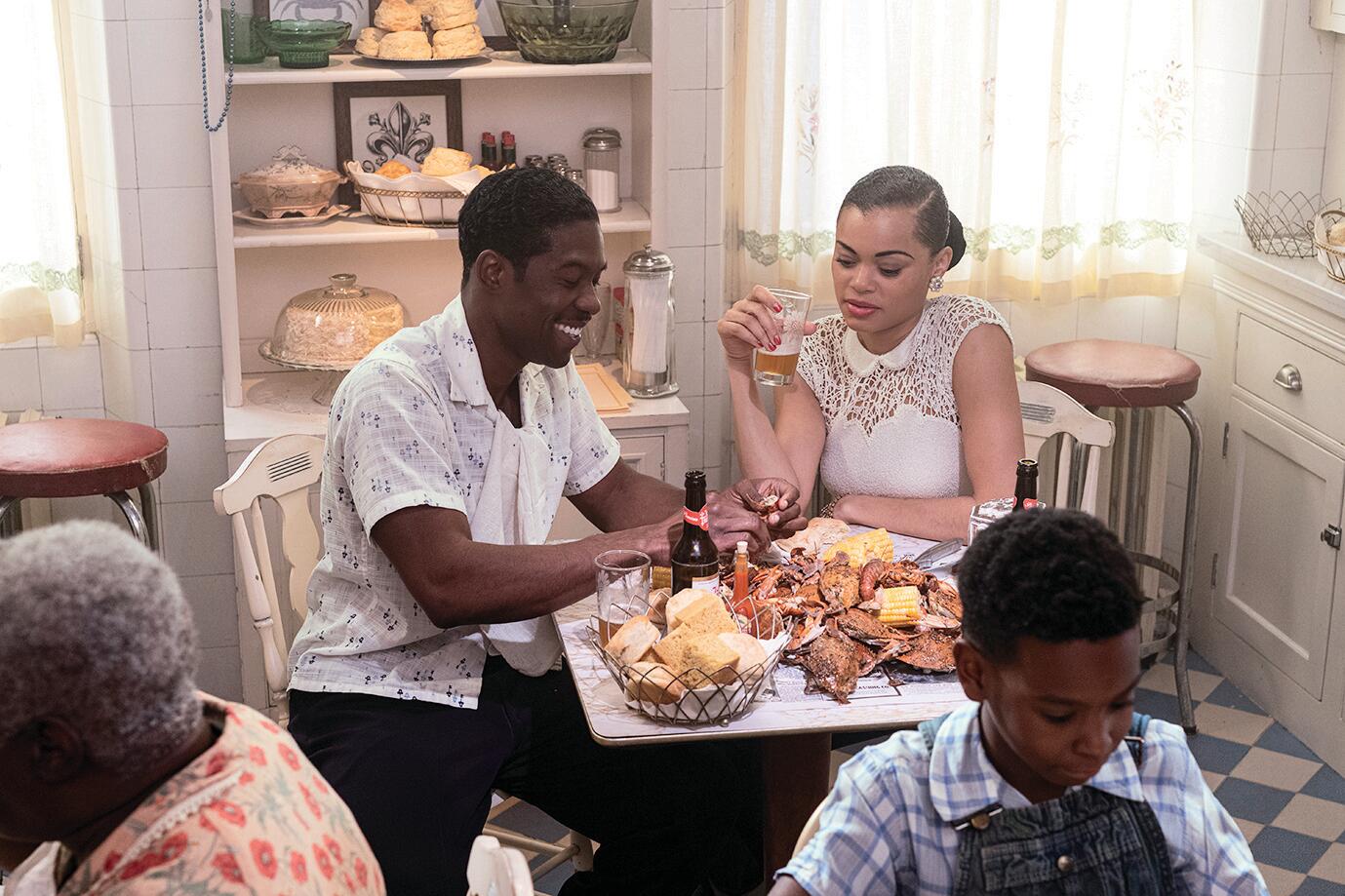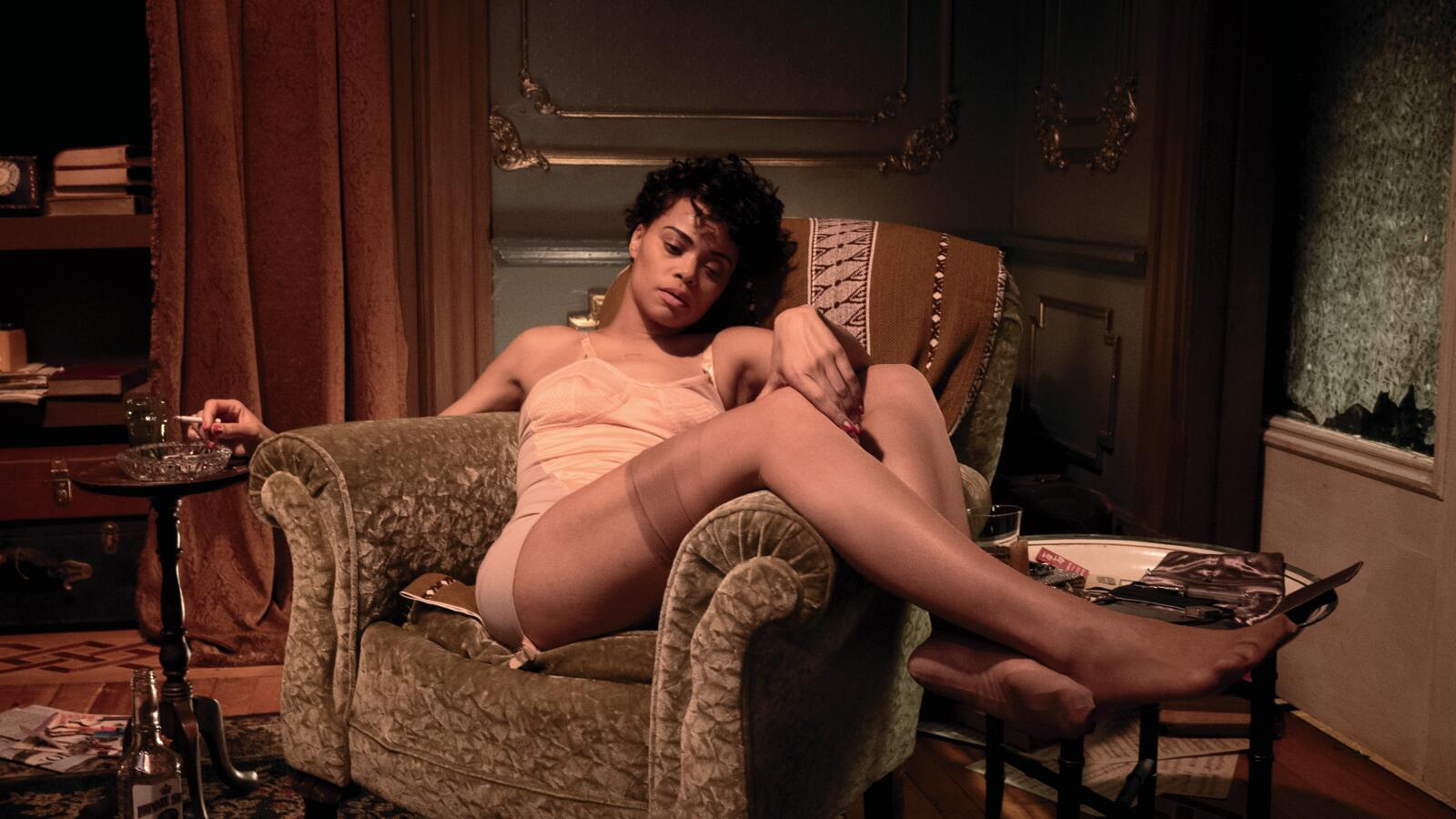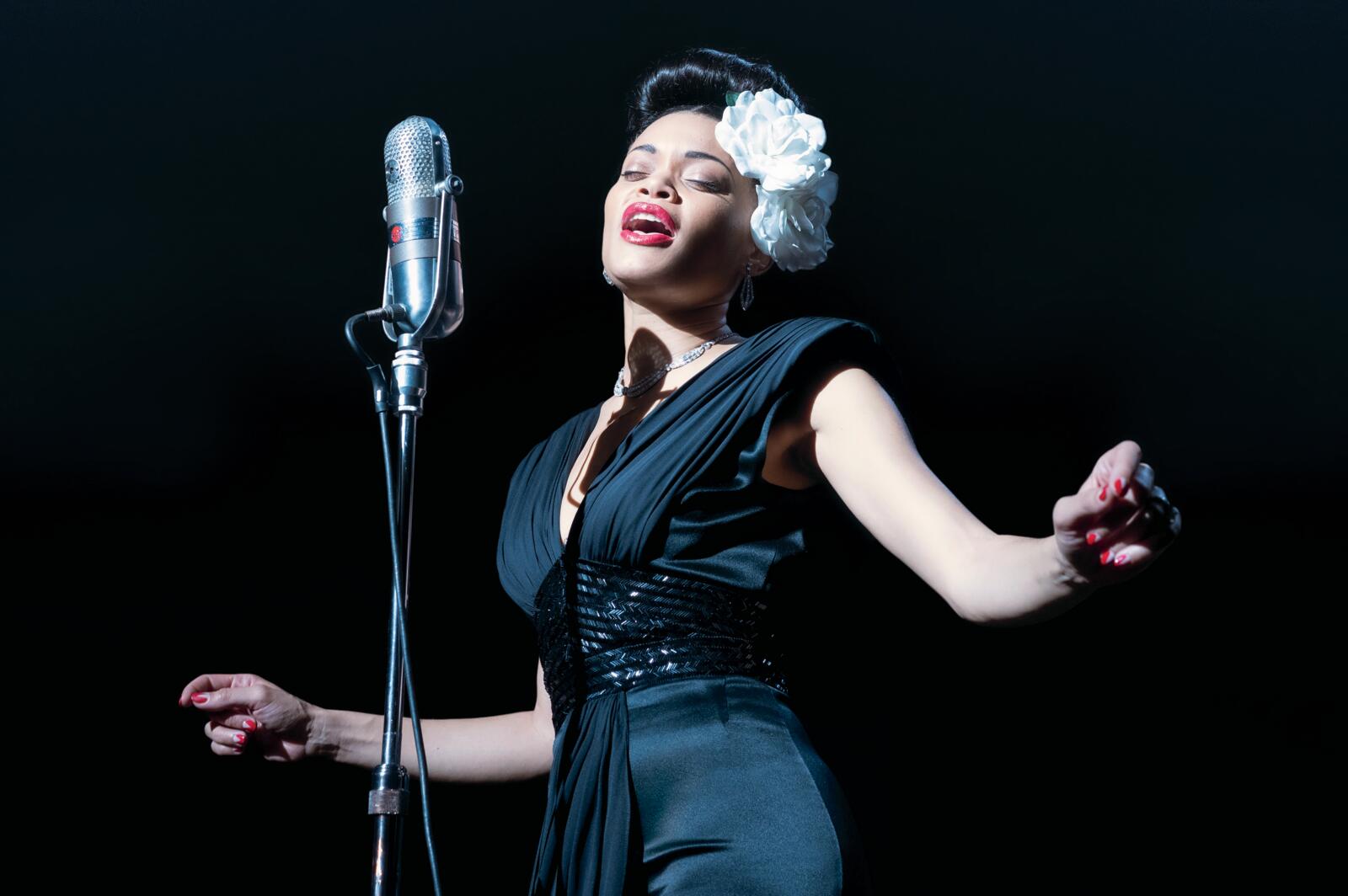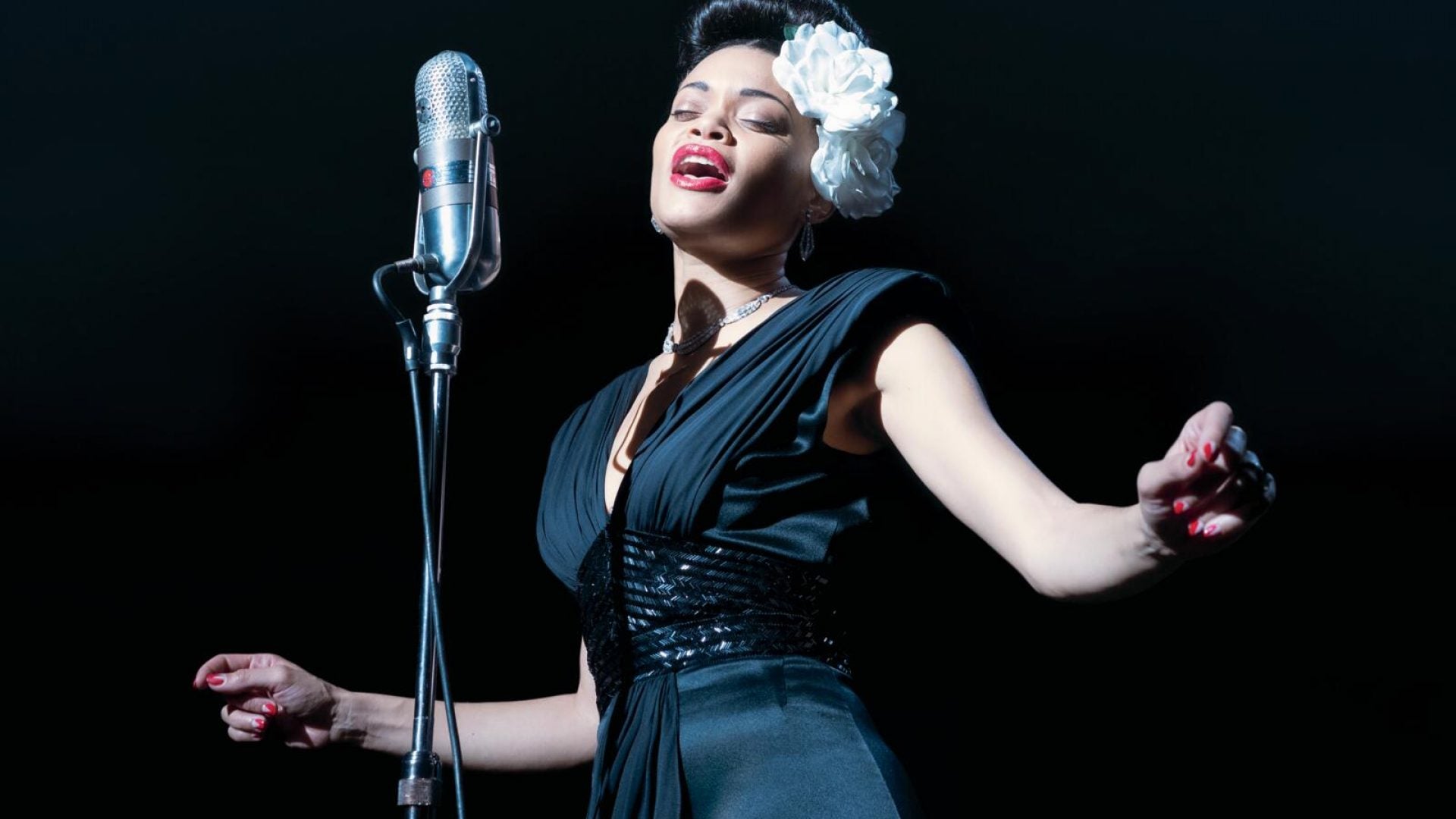
Billie Holiday’s music enthralls us like no other, and it’s why, more than 60 years after her death, the jazz diva’s voice is still being celebrated on stage and screen. Oscar-nominated director Lee Daniels reframes her prolific life in The United States vs. Billie Holiday (premiering February 26 on Hulu). The biopic stars Grammy-nominated singer Andra Day—and arguably who better to play the role, since the “Rise Up” singer’s eclectic style has been compared to Holiday’s since her 2015 debut. Portraying one of her musical influences is a dream fulfilled.
“To step into these gorgeous gowns, to get this hair together, to get this flower, like—honey, you can’t help but feel a little bit like the queen of that time,” says Day, who connected with embodying Holiday’s independent style. The wardrobe for the production mirrored the artist’s most iconic fashion moments. Stylist Paolo Nieddu spearheaded the costumes, tapping luxury line Prada for nine standout looks.
While the glamour of the ’40s and ’50s will surely pull audiences in, The United States vs. Billie Holiday magnifies the grit in Holiday’s music and how her political awareness brought constant scrutiny from the government. After her 1939 performance of “Strange Fruit,” Holiday, then 24 years old, would be under intense investigation by the Federal Bureau of Narcotics until her 1959 death of a drug and alcohol addiction. (In 1999, Time heralded “Strange Fruit” as the song of the century.)
“She was a human being with problems,” said director Daniels. “And yet she was a civil rights leader and a woman, and I think that she was a badass and needs to be honored.”
Day speaks about playing Holiday, and why it’s time for people to know of her social justice impact.
ESSENCE: Thankfully you finished the movie before the pandemic. But has the global crisis impacted the project?
Andra Day: We literally finished, everything in the can, on December 9, 2019. We went right from filming something so crazy, with such a sense of urgency and pain—but victory as well—right into a pandemic. It just feels like your equilibrium, like the sobriety of your thoughts is really being compromised. When they were looking to release it, I heard a few different dates: First it was spring of 2020, and then it was October 2020, and then the latest, obviously, was February. The filming didn’t have to be pushed back, but the release, because of COVID-19, definitely was postponed a couple of times. It’s been an adjustment.
ESSENCE: What did it mean to you to play Billie Holiday?
Day: It was a huge honor. And they hear me say this all the time, but I do love her so, so much. There’s no one funnier to me. There’s no one more charismatic, and up and down and all over the place. Like, I enjoy her as a person so much—not just the music, but just every interview and every gesture. So being able to play her was such a blessing, and a really transformative experience. But it also was a heavy burden to carry, to want to honor her legacy and to do it well. She lived a hard life but a beautiful life. And there was huge hesitation on my part, because I’m a singer, not an actress.
ESSENCE: What was it like prepping for your first acting role?
Day: Lee [Daniels] believed in me enough to do it. He was nervous, but he connected me with Tasha Smith, who was just, obviously, a wonderful actress and acting coach—and Thom Jones was my dialect coach. I mean, I credit a lot of people for helping me bring Billie Holiday to life. There were 20 different people all on set, trying to make me look great.
ESSENCE: When did you begin to feel comfortable with the role?
Day: I don’t even know that I could fully say I adjusted to it ever. Everybody’s like, “When did your nerves go away?” And I’m like, “My nerves would settle sometimes, but I never really got comfortable.” I was nervous. I was terrified. I was intimidated. You know, everyone on set was high caliber, such talented people. But I definitely know something—this project was meant to be.
ESSENCE: How was it recreating all of these glamorous beauty and style moments?
Day: I wear my hair in a certain type of bun cause that’s
how she wore it. I put flowers of all kinds in my hair, for everything. But to actually recreate and then step onto a set as her—whew. I think it’s just haunting. It’s difficult to put it into words, but it was just—it was amazing. Before I got to set, my hair had grown long; it was right at the top of my butt. So we had to cut every inch of that off. I was happy to do it for her, and for that character, and for the movie—and then I also lost a ton of weight. We could be really innovative with these looks, too, which was so exciting. It was just so much fun.
ESSENCE: What are you hoping audiences will learn about Billie Holiday’s life?
Day: I’m hoping that viewers understand that Billie herself was a hero. And that she sacrificed so much to help us to get to where we are now. We still have a lot of fighting to do, but she sacrificed her life. She was not just an amazing artist and a tragic drug addict—she was the godmother of civil rights.
